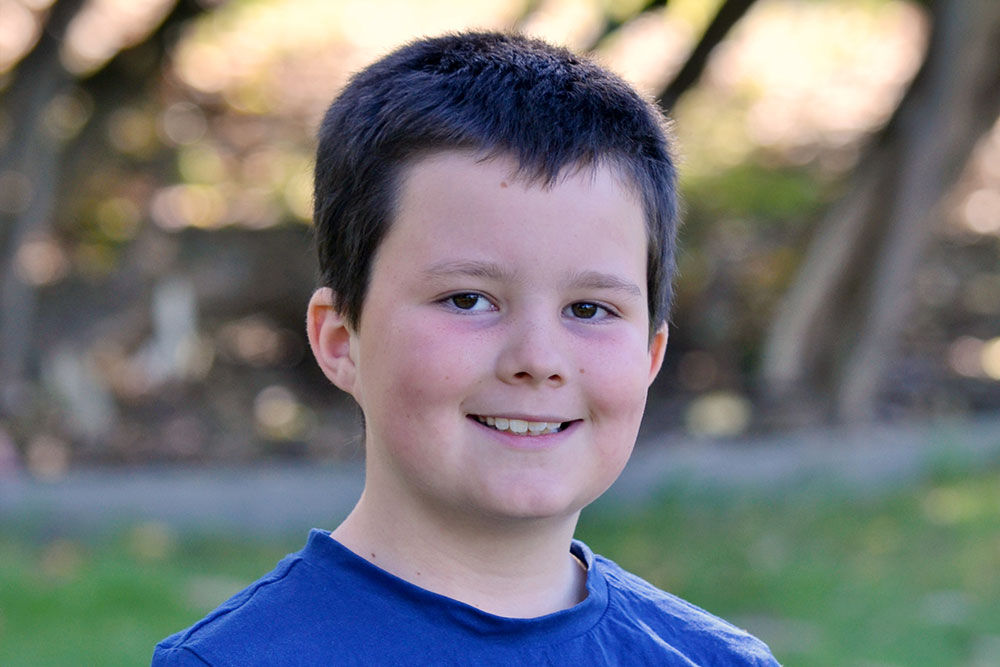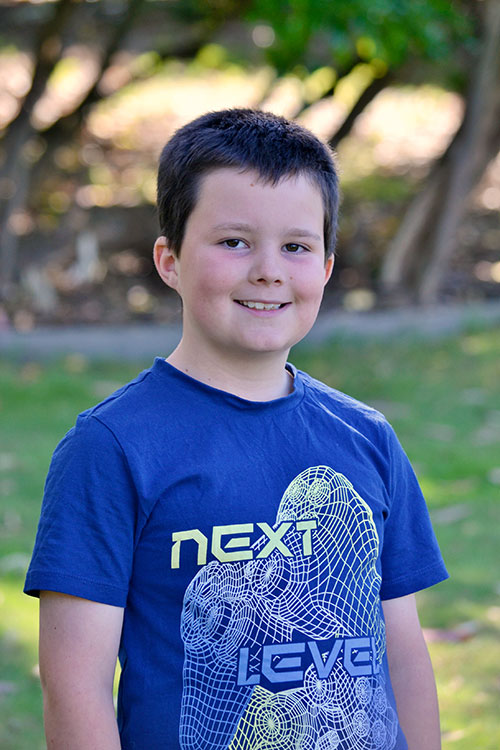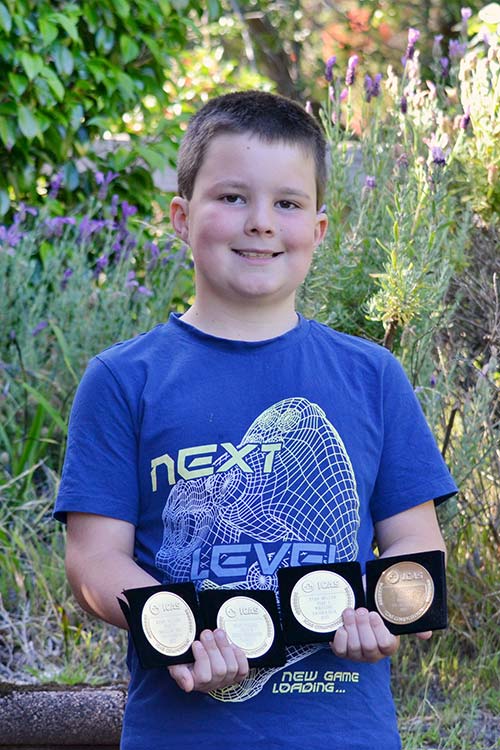How ICAS boosts Ryan’s love of learning

Ryan is a 9-year-old Australian boy living in the quiet town of Leith, located on Tasmania’s north coast. He has a younger brother, Eamon, a moggy called Mia, and goes to Devonport Christian School about five minutes down the road from his home.

Ryan is one of those people you meet who positively bursts with curiosity. When he’s not playing soccer with his friends Josh and Ziggy, he’s having fun solving arithmetic problems, figuring out Rubik’s cubes, writing stories about world-saving superheroes, and tackling other challenges that he seems to enjoy for their own sake. He has a genuine love of learning, which appears driven not from the outside, but from within.
As you might expect, this intrinsic love of learning has put him in good stead at school. His passion and hard work has led to his teachers regularly providing him with work a grade above his classmates, so he can attempt more complex maths problems and other challenging STEM tasks like coding little robots to move. It’s all great fun for Ryan. Problem-solving is what he seems to enjoy most about learning, because the more he practises, the harder the problems he can solve.
“[I like learning new things] because it helps me solve other problems. I can use things I learned in different subjects and use them elsewhere.”
As a problem-solving competition designed to challenge students with tough questions, ICAS is tailor-made for students like Ryan. Problem-solving is part of an advanced set of skills known as “higher-order thinking,” and every ICAS question invites students to exercise these important abilities.
When working through the ICAS tests, Ryan is invited to carefully analyse what is being asked for each question, search his brain for potential solutions, and synthesise his hard-won skills to come up with the correct answers. It’s sophisticated stuff, and the fact that Ryan enjoys doing it paints a very bright future for him. He has aspirations to become a structural engineer – a combination of Maths, Science, and creativity where he can take on huge challenges that tower before his very eyes. To be successful in this endeavour, he’ll need to use his higher-order thinking skills every day, so the fact they’re being tested and strengthened through the ICAS competition puts him in good stead.
For Ryan, ICAS is all about the fun of the challenge. He loves being faced with tough questions and getting them right, particularly the questions in the Spelling Bee test, which according to him is “definitely the most well-made.” We’ve passed your feedback onto our Assessment Content team, Ryan.
Jokes aside, the ICAS tests have another benefit that Ryan has noticed: they encourage him to sit and concentrate for long periods of time, while getting valuable exam practice.
“ICAS also helps me focus and feel more confident in normal school exams.”
Whether you’re an adult or a 9-year-old, being able to focus for extended periods is a crucial ingredient for success in anything, especially high-stakes exams that influence your future opportunities. ICAS is helping Ryan to build these important skills, and he happens to be fully engaged and having fun while doing it – a sentiment revealed by students in other schools, helping them to forge their own passions for learning.
When it comes to school, progress is the name of the game, and because Ryan has chosen to participate in the ICAS competition for two consecutive years, he gets to see how far he’s come in that time.
“I like being able to see what I’ve learned in the past two years.”
It can be incredibly satisfying to look at your past performances and see that your dedication and hard work has paid off, particularly for someone with Ryan’s ambitions. He’d like to work on the highest building in the world some day: the 1km-tall Kingdom Tower, which will pierce the Saudi Arabian sky once completed. He’ll need to keep working hard and achieving excellent results to do so.
Speaking of which – how did Ryan do in ICAS this year?
Well, he participated in six tests: English, Writing, Spelling Bee, Digital Technologies, Mathematics and Science. And during the end-of-year academic awards assembly at his school, he found out how he performed…
He won medals for FOUR of them!
This is an astonishing achievement, and quite the rarity for ICAS. He’s the first quadruple medal winner in years, and a big part of this can be attributed to his love of learning – a passion that has no doubt been carefully kindled by his teachers. It’s no surprise that Ryan really wants to do ICAS next year, not just for the medals, but also for the pens and other useful bits that come with the medal-winners pack. They aid his learning, after all.
At the close of our interview, Ryan revealed his passion for learning once again by gleefully declaring that he’d “answered 26 questions!”
He’d answered many more than that, but who are we to argue with a quadruple medal winner?

Tag:Case study, ICAS, medal winner
 Ryan, Year 3, Devonport Christian School, Tasmania
Ryan, Year 3, Devonport Christian School, Tasmania


